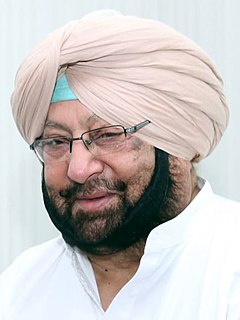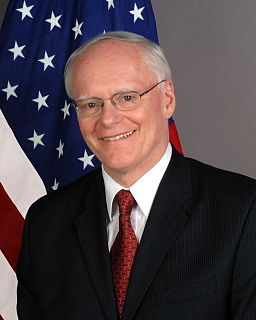A Quote by Amarinder Singh
As for people questioning the Balakot strikes, I think people have the right to question.
Related Quotes
Optimism is in short supply in the Middle East, but what I do think is the administration needs to step up its act. We should use military strikes against ISIS when they threaten the Shia areas or Baghdad. We need to accelerate very rapidly, and we have ways to do it, aid to the Syrians, and we need to be more active, with results, not simply inputs. That is absolutely important right now, because people are questioning our will, not our capabilities.
The most important part of the practice is for the question to remain alive and for your whole body and mind to become a question. In Zen they say that you have to ask with the pores of your skin and the marrow of your bones. A Zen saying points out: Great questioning, great awakening; little questioning, little awakening; no questioning, no awakening.
People who oppose violence often defend strikes, forgetting that strikes are historically every bit as violent as riots. They recast history so that strikes were always this ascetic refusal rather than open warfare with private or national military forces, where many, many people died so as to have some possibility of a decent work life, affordable housing, protections - the most practical goals we can imagine.
When an individual is taken into custody or otherwise deprived of his freedom by the authorities in any significant way and is subjected to questioning... He must be warned prior to any questioning that he has the right to remain silent, that anything he says can be used against him in a court of law, that he has the right to the presence of an attorney, and that, if he cannot afford an attorney one will be appointed for him prior to any questioning if he so desires.
People think they don’t understand math, but it’s all about how you explain it to them. If you ask a drunkard what number is larger, 2/3 or 3/5, he won’t be able to tell you. But if you rephrase the question: what is better, 2 bottles of vodka for 3 people or 3 bottles of vodka for 5 people, he will tell you right away: 2 bottles for 3 people, of course.
I think in that context, when a generation of kids is that ignorant of their recent history, it does a good job of showing what the Pistols were standing for. It's current and it's in the air, partly because I think nothing contemporary is as extreme or as strongly stated as what The Sex Pistols were able to do in their time, in the '70s. I think the reason to [make the film] is that their ideas are still alive: the defense of the right to be an individual, and questioning everything you read, and questioning all the information that's bombarded increasingly at you.
If you ask me can you explain the success of Facebook or Twitter, its very simple. People want to have the right to speak, people want the right to say what they feel. They don't want to wait for the question to be asked, they want to say before asking the question, they want to say everything that they feel.
That's one of the biggest issues that we see in the question of governments right now, I think, in the Western world. Is that increasingly all of our elected officials are pulled from the same class. These aren't normal people. I don't want to say they're all terrible people, but at the same time, they're not like you and me. These are people who have sort of a nine to five working history.
The central question is, is this guy right? Or is he mad? What do you, the reader, think about this? Which struck me as a properly anarchist solution. I didn't want to tell people what to think, I just wanted to tell people to think and consider some of these admittedly extreme little elements, which nevertheless do recur fairly regularly throughout human history.
We can be aggressive at the right time with the right stakes when it comes to price. But I think for us, it starts and ends with people. And generally speaking, venture investors will say that. Right? That people are very important. It is all about the people. But at Anthemis, it is beyond "all about the people." Because it's almost exclusively about the people. We've been operating this way for a while.
I would say that deconstruction is affirmation rather than questioning, in a sense which is not positive: I would distinguish between the positive, or positions, and affirmations. I think that deconstruction is affirmative rather than questioning: this affirmation goes through some radical questioning, but it is not questioning in the field of analysis.


































